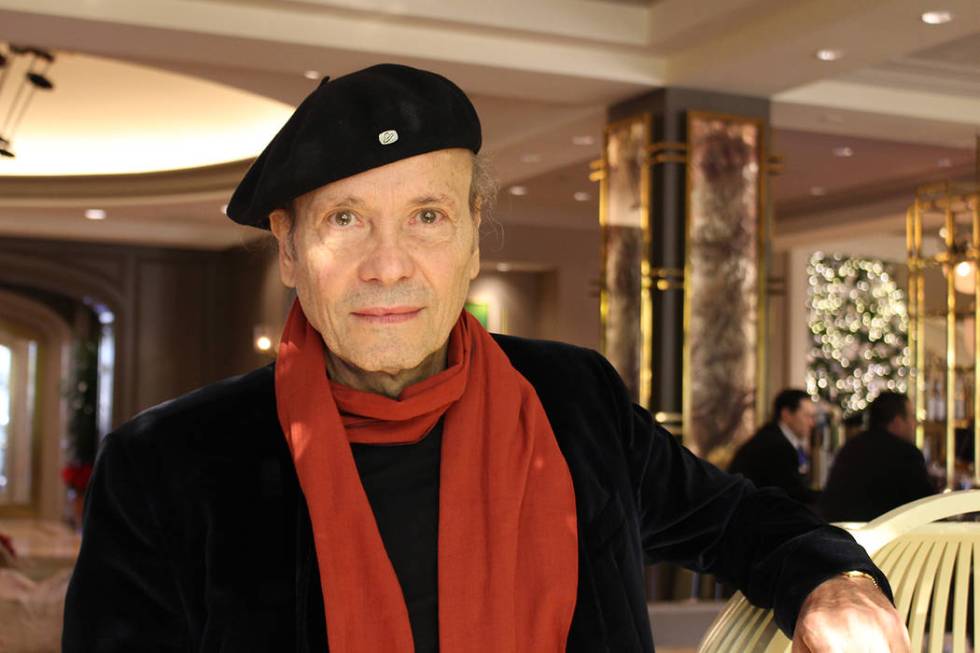Nevada high court to rule on dispute over copied artwork

It was October 2014 when Marco Sassone first saw the forged artwork. It came in the form of a Google notification — an original Marco Sassone lithograph for sale.
But Sassone said he’s never done lithographs. He prints copies of his paintings as serigraphs, or silk screen prints. As the 75-year-old artist looked closer, he enlarged the signature.
“It was fake,” the painter said. “I was destroyed.”
He ordered some of the prints, which were shipped from Las Vegas. He later filed a lawsuit in Clark County District Court against several defendants, including Darrell T. Coker, which alleges deceptive trade practices. The case is pending in the Nevada Supreme Court.
Coker’s attorney, Marc Randazza, previously filed a motion to dismiss Sassone’s complaint under the Anti-SLAPP Act, which protects against lawsuits involving First Amendment rights. The attorney has argued that the dispute centers on freedom of expression.
District Judge Rob Bare denied the motion, and Coker’s lawyer appealed to the state’s high court.
Randazza argued that Sassone’s work is public and Coker had the right to redistribute it under the First Amendment.
“Are you engaging in expressive activity if you’re distributing art? I say you are,” Randazza said. “My client is a guy who buys and sells lots of items. They were clearly sold as copies, not as originals.”
Randazza said that the case should focus on the issue of copyright, not fraud.
“They claim this artist has never made a lithograph and are trying to claim he has never authorized copies of his work. He allows serigraphs. You tell me the difference, because I don’t know,” Randazza said. “They’re using this very novel interpretation of the fraud statute.”
Randazza said in order to prove fraud, the plaintiff must show that someone was wronged through the purchase.
“Who was wronged?” he asked. “They don’t have that.”
“He is holding these out to be authentic lithographs,” said Dominic Gentile, a longtime Las Vegas attorney who has collected his client’s work since the 1980s.
In court documents, Sassone claims Coker has made fraudulent copies of his work, forged his signature, and forged certificates of authenticity.
“This is telling the public that this is a real Sassone,” Gentile said.
In a career spanning at least 50 years, Sassone said he never has dealt with a forgery before. His silk screens sell for $2,000 to $6,000.
The lithographs of his work went for upward of $200, and at least 120 pieces are for sale. They were scanned from Sassone’s book.
Coker previously spent about four years in a Florida prison for racketeering, or fraudulent business dealings, Florida Department of Corrections records show.
Sassone said Gentile, an art collector and fellow Italian-American, “took this case to heart.”
The artist is seeking an injunction, as well as damages for lost business. He said the lithographs have caused him to lose about 90 percent of what he was previously making.
“What I would like to do is close his shop because this case is not about me,” Sassone said, adding that other artists face similar issues.
Sassone, who was born in Florence, moved to the United States in 1967. In 2005, he moved to Toronto with his wife.
When he first moved to California, he said he was inspired by the sunshine and palm trees. It showed in his paintings, for which he uses mediums such as oils, watercolors, pastels and charcoals.
His most recent Toronto show, Viaticus, was named after the Latin word for “our belonging to a road or journey.” It ran from Nov. 9 to Dec. 14.
The 18 art pieces in the exhibition centered around discovering or finding new sights, from scrap metals to railroad tracks and skyscapes.
Although the court case has taken away a year from creating paintings, Sassone said, “it’s been a voyage, a journey on its own.”
Contact Briana Erickson at berickson@reviewjournal.com or 702-387-5244. Follow @brianarerick on Twitter.